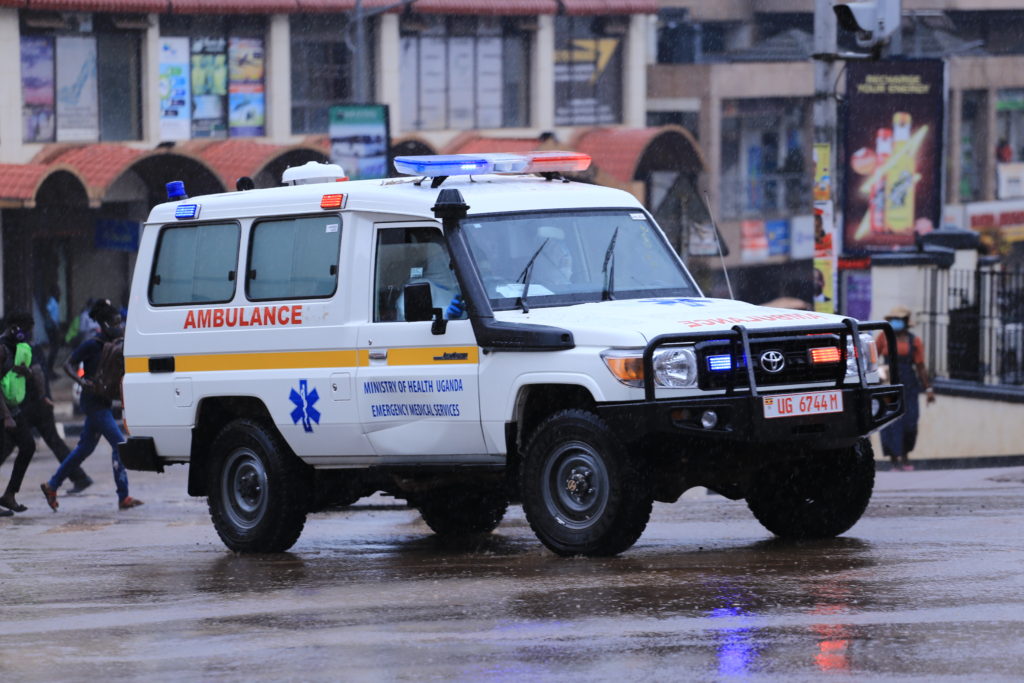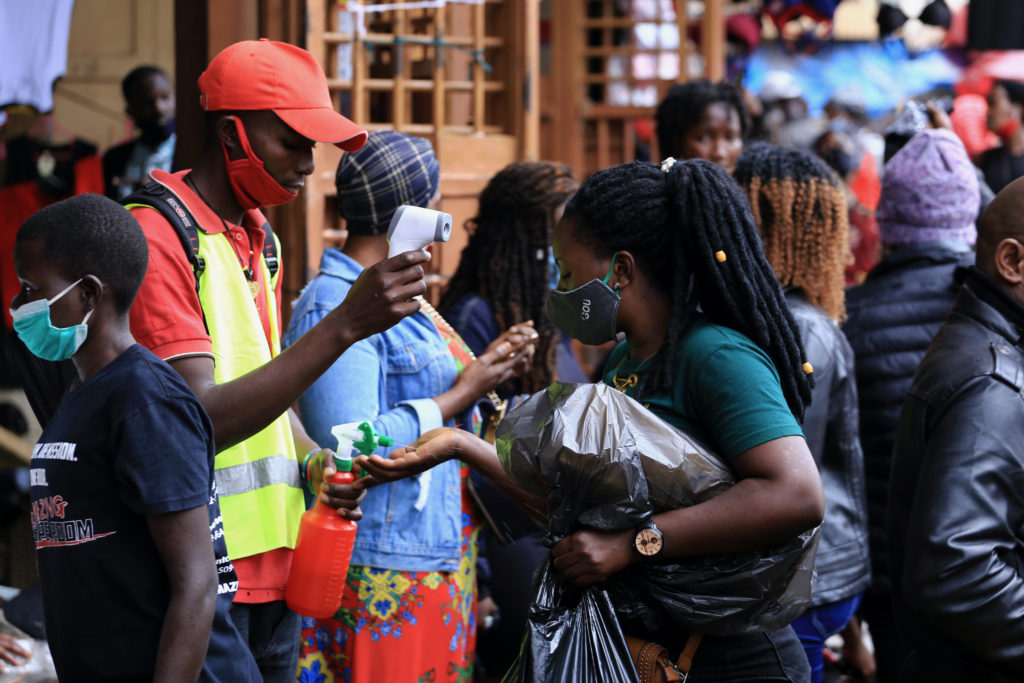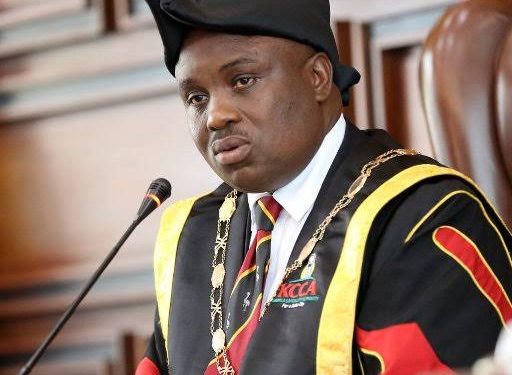By Robert Madoi
Kampala city Lord Mayor Erias Lukwago stated on August 27, 2020 in a TV interview:
“There seems to be no serious decision being made in terms of tracking down the contacts, case management and mass testing. The rate of testing is very low.”
While appearing on NTV Uganda’s flagship morning show, Morning@NTV, on August 27, Erias Lukwago was uncompromisingly forthright. The Kampala Lord Mayor suggested that sticking plaster was being torn off Uganda’s Covid-19 mortal wound. He provided plausible and helpful, if incomplete, answers that projected the fight against Covid-19 as a grueling and expensive ordeal. A sense of disdain coursed through the 50-year-old lawyer’s voice when he said in no uncertain terms that Uganda has a tenuous hold on testing for the novel coronavirus.
“There seems to be no serious decision being made in terms of tracking down the contacts, case management and mass testing. The rate of testing is very low.
“Countrywide you will find that less than 400,000 people have been tested out of say 40 million people. That percentage of people who have tested is negligible.”
OUR VERDICT
Lukwago’s claim is largely accurate in as far as stating that Uganda has not quite found a way to stack the deck in its favour when it comes to testing. By September 7, the reference website, Worldometer put the tests conducted in Uganda at 395,875. To get a sense of how Uganda has struggled to clutch at sufficient Covid-19 tests, per capita statistical observances ought to be considered. Conducting nearly 9,000 tests per million people reflects an inadequacy to track the epidemic efficiently. It certainly pales in comparison with southern neighbour, Rwanda, whose collective figure of 439,893 equates to 33,815 tests per million people.
The low levels of testing are not peculiar to Uganda. Africa’s financial woes and its attendant struggles have translated into overwhelming failures to acquire testing supplies to match local needs. Uganda’s eastern neighbour, Kenya, has for instance faced logistical nightmares that have scampered its plans to do more than the 474,477 tests it had mustered by September 7. Although this has not produced the worst imaginable result, the East African powerhouse — with a nearly 54 million-strong population — remains stuck at 8,790 tests per million people.

Only three African countries (South Africa on 3,800,190; Morocco on 2,070,053; Ethiopia on 1,044,005) had by September 7 managed to breach the one million tests barrier. Not even a steady stream of debt relief programmes and direct contributions have removed the millstone round Africa’s neck. Leaders across the continent have found themselves unable to use their wherewithal to break the logjam over this low testing issue. On account of this context and background, we rate Lukwago’s claim true.
OTHER CLAIMS MADE
Lukwago also told Morning@NTV that Covid-19 will spread faster in places the Electoral Commission has classified as low risk as Uganda prepares to go to the polls. Back in July, the commission’s chairman, Justice Simon Byabakama, revealed that contestants for political office won’t be kept on a tight leash. He told parliament’s committee on legal and parliamentary affairs that town hall meetings of no more than 50 people will get the green light to embody various acts of electioneering.
On August 27, Lukwago professed to scoff at a move in that direction. “You can observe the SOPs (standard operating procedures) in an open space and not a town hall,” he said, adding, “Under the instrument [health minister] Dr. Ruth Aceng issued, a gathering of 10 and more people is dangerous.”

OUR VERDICTS
The Public Health (Control of Covid-19) Rules, 2020 is a statutory instrument. It was gazetted on March 24 as government sought to gain a formidable instrument for getting a handle on the pandemic. Rule 9 of the instrument — which Lukwago broadly alludes to — speaks to control of public gatherings, meetings, et cetera. While the sub-rule addressing political activities isn’t tethered to a number, human rights lawyer, Nicholas Opiyo advises not to, “read [the instrument] piecemeal; read it as a whole.” Taken as a whole, the evidence suggests that the spirit of the law is to control public gatherings. On account of this, we rate the Lord Mayor’s claim as Mostly True.
Lukwago also suggested that indoor settings carry a higher risk for Covid-19 than outdoors. A number of studies have explored this issue and come to the conclusion that poor airflow, reduced distancing and prolonged exposure make indoors potential minefields. One study by the London School of Hygiene and Tropical Medicine for instance, “found that many clusters of cases were linked to indoor settings.” Another study from Japan noted: “Many Covid-19 clusters were associated with heavy breathing in close proximity, such as singing at karaoke parties, cheering at clubs, having conversations in bars, and exercising in gymnasiums.” What both epidemiological studies spell out is that Covid-19 outbreaks become more likely whenever people gather together indoors in poorly ventilated spaces. We therefore rate Lukwago’s claim as true.
_____________________________________________
Our sources
NTV Uganda, Lukwago blames Govt officials for general laxity on COVID-19 measures, August 26, 2020.
Worldometer, coronavirus cases (Uganda, Kenya and Rwanda), September 7, 2020.
KFM, EC to allow town hall meetings with only 50 people, July 2, 2020.
Uganda Legal Information Institute, Public Health (Control of Covid-19) Rules, 2020, March 24, 2020.
Peer-reviewed research article, What settings have been linked to SARS-CoV-2 transmission clusters?, June 5, 2020.
Peer-reviewed research article, Clusters of Coronavirus Disease in Communities, Japan, January–April 2020, September 2020.


